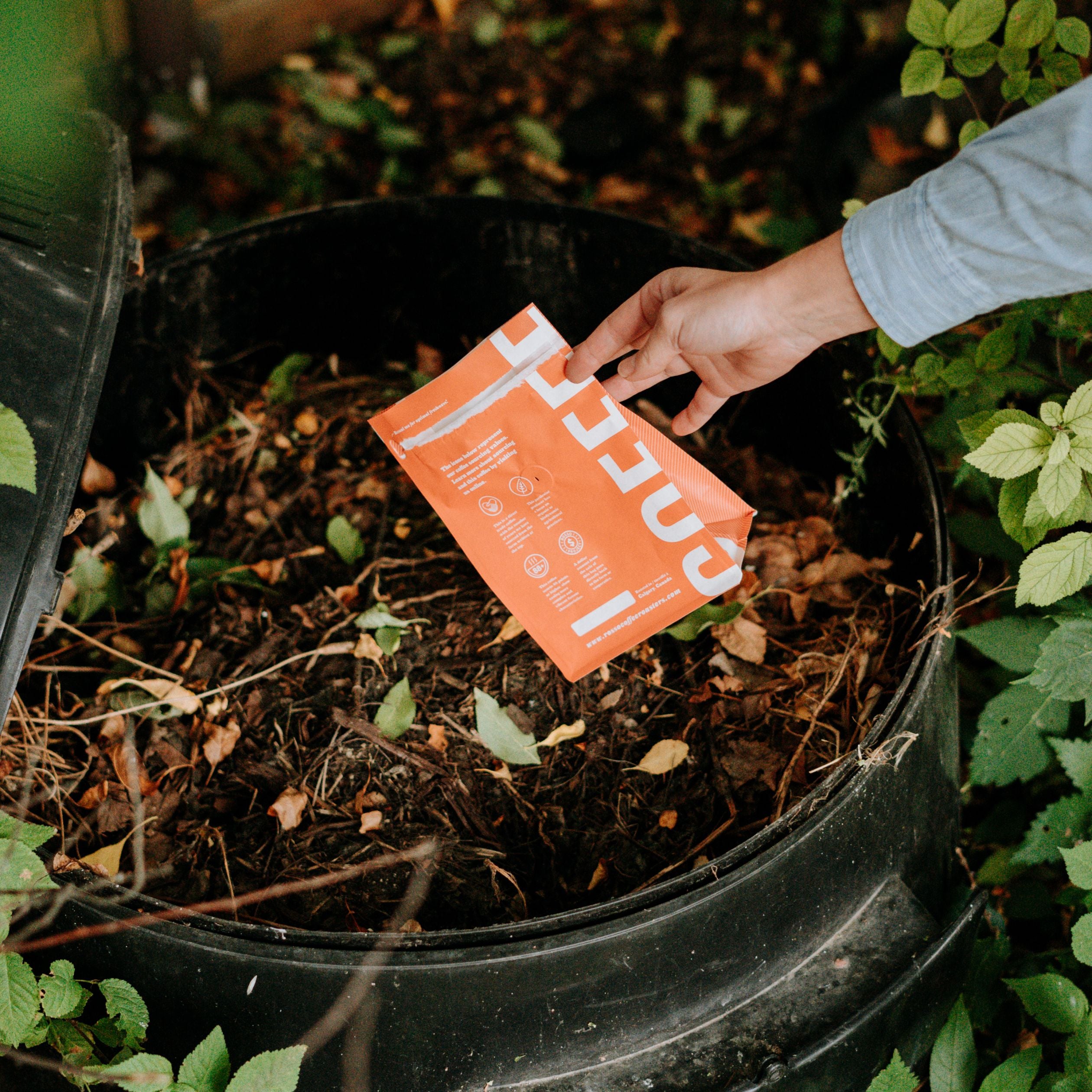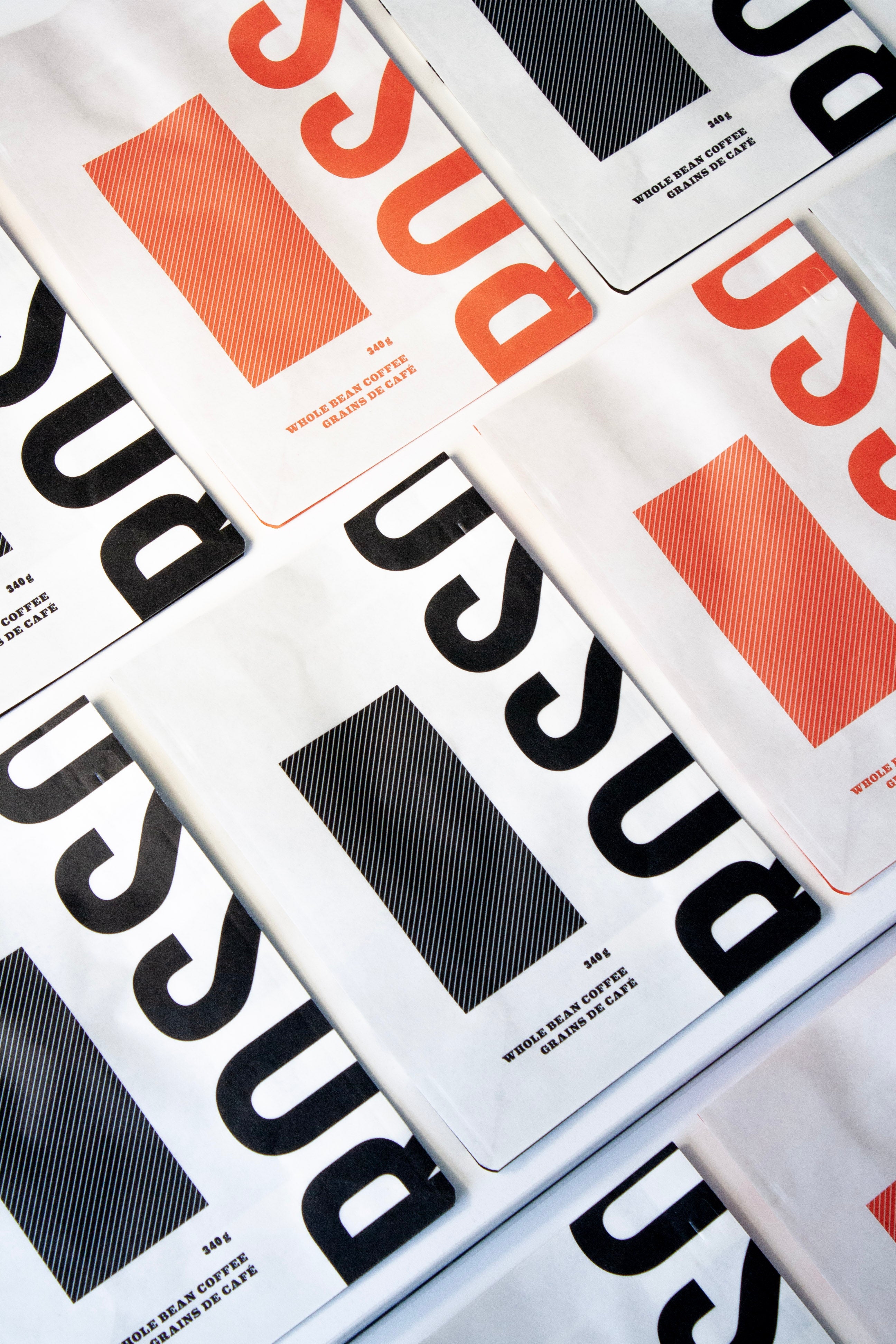The Decaf Project / Colombia
- Regular price
-
$38.00 - Regular price
-
- Sale price
-
$38.00
Colombia
TASTES LIKE
Find out!
Couldn't load pickup availability
ROSSO DIRECT TRADE
We source directly from producers when we can to make sure the most profit gets to the farmer. Our sourcing values are shown through our icons on each of our coffee labels and on the back of our coffee bags.
SHIPPING
Once your order is received, it will be processed and shipped in 1-3 days.
Free delivery in Calgary for orders over $20. (in city limits)
Free delivery across Canada & the US for orders over $75
Biotrē Bags 2.0
Our 340g and 2lb coffee bags are made entirely of from plant materials and breakdown in a relatively short period of time.
Biotrē 2.0 FAQ
Are these bags completely compostable?
No, due to the inner lining made of sugar cane. However, this layer is made sustainably with 100% renewable material (meaning not made of fossil fuels, but instead bio-based and natural resources that can be replenished through a natural process).
That’s not all. About 60% of the bag components break down under standard composting conditions, so they can be partially composted in your back yard compost. Go earth!
Can I put this in the city compost?
You should not put these bags in the Calgary city compost, due to rudimentary composting facilities. However, you can compost the outer lining in a healthy home compost which will break down within 12 weeks. Dispose of the sugar cane layer in the garbage afterward.
What if I don't have access to a backyard compost?
Please dispose of the bags in the garbage. It may feel wasteful, however, these bags will break down at least 10 times faster in a landfill vs other coffee bags because of the plant-based materials they're made with.
How are these bags better for the environment?
The plant-based components that go into Biotre® 2.0 absorb the greenhouse gas CO2 through natural plant respiration prior to being used. Manufacturing these bags produces a significantly smaller carbon footprint (as much as 60% less from the typical coffee bags). They break down much faster in the landfill as well. We're talking 5-10 years vs 100 years, which is the time it takes for most other coffee bags to break down!

Our 340g and 2lb bags are made with Biotrē 2.0 materials, which are 60% compostable and 100% renewable, including the valve!
Additional FAQ on our new bags
What’s the difference between the red bag and the black bag?
The red bag contains the coffees with an acidity rating from 3-5. The black bag contains coffees with an acidity rating of 2 or lower.
In summary: coffees that are a little more adventurous—red; comfortable and more classic coffees—black.
How does the Sweetness, Acidity, and Body Scale work?
This is an internal scale from 0-5 comparing our own coffees. Each coffee is cupped and the sweetness, acidity, and body are rated. Keep in mind that different brewing methods may affect results.
Why isn’t my phone reading the QR code?
If you’re using an iPhone, you may need to use your QR Code Scanner instead of your camera app. The QR Code Scanner is located in the Control Centre.


The Decaf Project / Colombia
All orders will ship November 28!
Step into the world of decaf like never before with The Decaf Project by James Hoffmann. This exclusive set offers a rare chance to explore a single origin coffee from Guadalupe, Huila, Colombia, across multiple decaf processes, alongside a traditional washed version. Join James live online for a global tasting experience that dives deep into the nuances of each cup!
This unique collection features four 100g bags! This is an extraordinary way to taste and compare how decaffeination impacts flavour, while also celebrating the rich heritage and sustainable practices of the coffee-growing families of Guadalupe.
Inside the set:
La Virgen (Non-Decaf): A pure, non-decaf washed coffee that captures the natural essence of Guadalupe’s terroir.
La Virgen – Swiss Water® Decaf: Decaffeinated using the Swiss Water® Process, a gentle, chemical-free method that preserves the coffee’s full flavors while removing caffeine.
La Virgen – Ethyl Acetate Decaf: Decaffeinated by Coffein Co., this process uses ethyl acetate to create a smooth and rich decaf experience.
La Virgen – CO2 Subcritical Decaf: Decaffeinated using CR3-Kaffeeveredelung’s subcritical CO2 process, this cutting-edge method maintains the integrity and flavor of the original coffee.
This project is designed for those who want to expand their understanding of decaf. Discover how decaf can deliver just as much character as its caffeinated counterpart.
Learn more and stay tuned at www.thedecafproject.com.
| Varietal | Caturra, Colombia, Castillo |
| Process | Washed |
| Farm | Small holders |
| Producer | Growers of Guadalupe |
| Geography | Guadalupe, Huila, Colombia |





